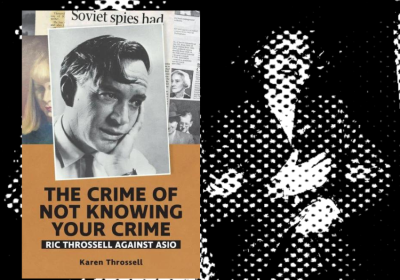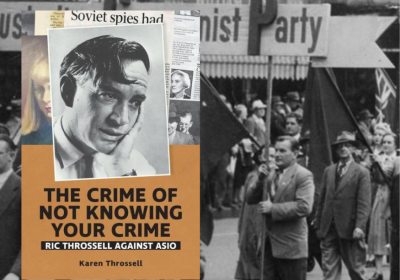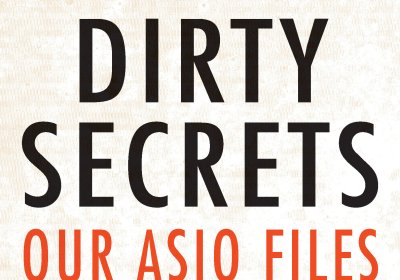ASIO has revealed that Indian spies are operating in Australia, undermining Labor's efforts to boost the region’s anti-China alliance. Binoy Kampmark reports.
Australian Security Intelligence Organisation (ASIO)
Bevan Ramsden asks whether federal Labor’s fears of another United States intervention in domestic politics, such under Gough Whitlam, underpins its enthusiastic acceptance of AUKUS?
Maree Roberts reviews Karen Throssell’s book about her father’s persecution at the hands of Australian security services.
Melbourne-based labour historian, Phillip Deery recently launched Karen Throssell's book The Crime of Not Knowing Your Crime, about her father Ric Throssell's lifelong battle with ASIO to clear his name.
The propaganda war against China and Russia got a whole lot worse in the past week. The very real danger of war either in our region, or in Europe, was made abundantly clear, argues William Briggs.
Home affairs minister Peter Dutton is using the COVID-19 pandemic to push through amendments to security laws that will further erode people’s rights, argues Vivien Miley.
Sivaguru Navanitharasa, a Tamil refugee who fled Sri Lanka in 2008 and who has been detained for nearly 10 years, now faces a new challenge: overcoming cancer.
Dirty Secrets: Our ASIO Files
Edited by Meredith Burgmann
Newsouth, 2014
464 pages, $32.99 (pb)
The only thing worse, notes Meredith Burgmann in Dirty Secrets, than discovering that your personal file held by Australia’s domestic political police, ASIO, is disappointingly thin is to find out that your official subversion rating hasn’t warranted a file at all.
Since 2003, the Australian Security Intelligence Organisation (ASIO) has had the power to detain people for up to seven days, without charge, for questioning in relation to a terrorism investigation.
That person does not have to be a terrorism suspect or even an associate of a terrorism suspect; is compelled to answer questions; and is forced to keep the detention and interrogation secret.
Over the past few months, refugees who were once deemed by ASIO to be a threat to national security have been gradually released from indefinite detention. It appears that one of Australia's most internationally criticised immigration detention policies is being quietly abandoned. The most high-profile victims of this policy, Ranjini and her son, who was born in detention and had never known a day of freedom, were released on November 13.
- Page 1
- Next page










